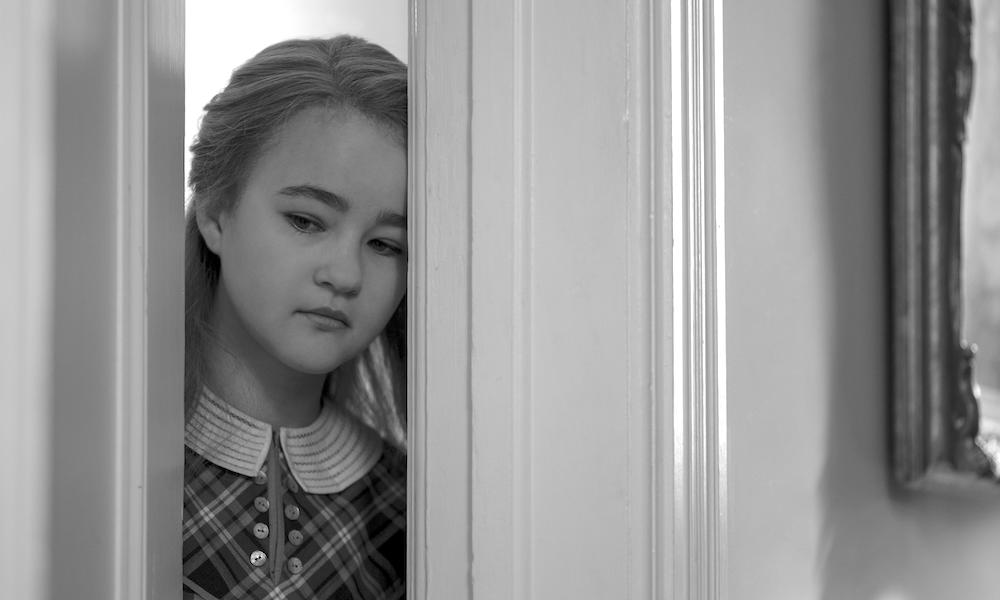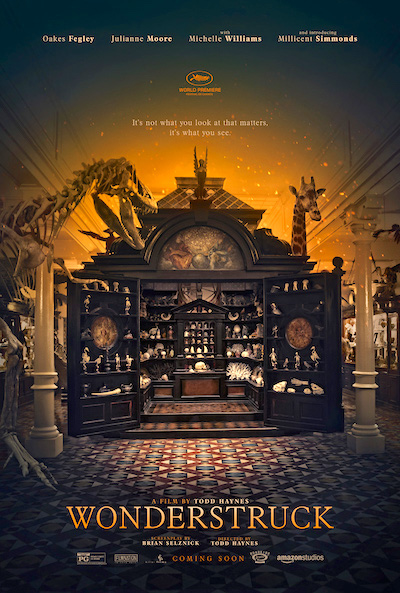Wonderstruck

There are too many sublime moments to count in Todd Haynes’s Wonderstruck, yet there’s something about it that never quite clicks. It might be that, having made the masterful Carol, we expected too much from the director’s next project – that an adaptation of a young adult novel would never quite cut the cheese. And “cheese” is what often rears its head in Wonderstruck, both in Hugo author Brian Selznick’s source material and this adaptation, which implements as much visual flair as it can to disguise its story’s slight, familiar feel.
The core conceit of this feature is its use of parallel timelines. The first unfolds in 1977, where a young boy, Ben (Oakes Fegley), has recently lost his mother, Elaine (Michelle Williams). The second takes place in 1927, and centres on a young deaf girl named Rose (Millicent Simmonds). The latter is realised – stunningly – as a black-and-white silent film, imparting all information through its carefully composed visuals. (Ed Lachman, once again, does a remarkable job with 16mm photography.) The two stories start to inform each other when Ben is struck by lightning and loses his own hearing; both involve kids running away to New York in search of parental figures, and then finding themselves opening to the wonderful possibilities of the world.
It’s a compelling enough mystery, and gives Haynes the opportunity to indulge in his favourite themes – namely pastiche, meticulous period detail, and the process of looking, in this case through the eyes of lost children. Yet it’s here that the film’s biggest problem lies. Wonderstruck was touted as the feature that would reunite Haynes and Julianne Moore, who have, in the past, struck cinematic gold. And every time Moore is on screen – both as silent movie actress Lillian Mayhew and in an older, more mysterious role – the work proves to be intensely captivating. (A pivotal scene she has in a bookshop seemed to move the entire theatre to tears.)
But Moore is only in the film in a supporting capacity – as is Michelle Williams, who has about three minutes of screen time. The rest of Wonderstruck is dominated by the kids. While Simmonds, herself a member of the deaf community, is a phenomenal discovery, the piece could have used a better child actor in the role of Ben; Oakes Fegley is a jarring product of Disney movies, and isn’t capable of the naturalistic subtlety that the role requires. And his 1977 segments strongly outnumber the silent film antics, which could have easily held a movie by themselves.
And this applies to the script, too. While Haynes stages some staggering visual coups – notably a diorama-centric climax – he’s forced to concede to a story that prioritises telling over showing, with a conservative bent towards practical media, and that moves towards a mushy, unsatisfying ending. Consider this critic struck with disappointment.
Sam Gray
Wonderstruck does not have a UK release date yet.
Read more of our reviews and interviews from the festival here.
For further information about Cannes Film Festival 2017 visit here.
Watch a clip from Wonderstruck here:






















Facebook
Twitter
Instagram
YouTube
RSS